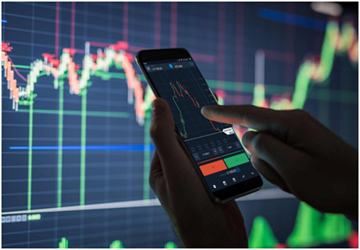The Evolution of Stock Market Exchanges: From the NYSE to Digital Trading Platforms
Author: Franco Salzillo
We'll journey through the evolution of stock market exchanges from the famous New York Stock Exchange to the digital trading platforms of today.
The New York Stock Exchange, or NYSE, was founded in 1792, and it's one of the oldest stock markets in the world. Traders used to gather under a buttonwood tree in New York City to trade stocks, and it was all great until the market crash of 1929. Following that incident, the Securities and Exchange Commission (SEC) was created to regulate the stock market and prevent another such catastrophe.
During the 20th century, the NYSE became the symbol of American capitalism. Companies listed their stocks there to gain prestige, and investors flocked to the trading floor to try and get a piece of the action. It was a place where you could see the heartbeat of the American economy.
However, as technology improved and computers became more accessible, the stock market saw a massive change in operations. The stock market landscape has evolved over the years to incorporate efficiency and accessibility.

The Rise of Electronic Trading
In the 1970s, electronic trading emerged as a new way to buy and sell stocks. The NASDAQ was founded in 1971 and became the first electronic stock market. It was a radical change from the traditional trading floor model of the NYSE, and it soon became a popular alternative to the old way of doing things.
The NASDAQ had a few advantages over the NYSE. First of all, it was faster and more efficient. Trades could be executed almost instantly, and investors could get real-time quotes on their stocks. Secondly, it was more democratic. The NASDAQ was open to all investors, not just the elite Wall Street traders who could afford to be on the NYSE trading floor.
However, electronic trading didn't become the dominant force in the stock market until the 21st century. The internet changed everything, and online brokers like E*TRADE and TD Ameritrade made it easy for anyone with an internet connection to buy and sell stocks. The rise of online trading led to new digital trading platforms like the Chicago Mercantile Exchange (CME) and the Intercontinental Exchange (ICE).
Digital Trading Platforms
Digital trading platforms have become increasingly popular in recent years, revolutionizing how people invest in the stock market. These platforms offer a range of benefits, including lower fees, faster trade execution, and more advanced trading tools.
Robinhood
One of the most popular digital trading platforms is Robinhood. Robinhood was founded in 2013 and quickly became a favorite among young investors. The platform offers commission-free trading and an easy-to-use interface that makes it accessible to everyone. Robinhood has also faced criticism for its gamification of the stock market, which has led some users to take on excessive risk.
Coinbase
Another popular digital trading platform is Coinbase. Coinbase is a cryptocurrency exchange that allows users to trade cryptocurrencies like Bitcoin and Ethereum. The platform has grown rapidly in popularity over the past few years as more people have become interested in cryptocurrency investing.

WeBull
WeBull offers a range of advanced trading tools, including technical indicators and charts, and a paper trading feature that allows users to practice trading strategies without risking real money. It has gained a reputation for its strong customer service, with users reporting quick response times and helpful support staff.
M1 Finance
M1 Finance's "Pies" feature allows users to create custom investment portfolios with up to 100 stocks, ETFs, and other investments. It also offers a range of pre-built portfolios for those who prefer a more hands-off approach. The platform is designed for long-term investors seeking a simple, customizable investment method. It automatically rebalances users' portfolios and reinvests dividends, making it easy for users to maintain a diversified portfolio.
Swell Investing
Swell Investing's investment options focus on renewable energy, clean water, and healthy living; for its corporate social responsibility, it offers donations to various charitable causes. Swell Investing's portfolios are designed to align with various social and environmental causes, such as clean water, renewable energy, and disease eradication. Users can invest in a specific cause or create a custom portfolio that aligns with their values. Swell Investing also offers a unique "impact dashboard" that allows users to track their investments' social and environmental impact.
eToro
eToro's social trading feature allows users to check and imitate the successful trades of other investors. In addition to its social trading feature, eToro offers various investment options, including cryptocurrencies and commodities. You can access a wide range of educational resources on the platform, including webinars and trading courses. It is also known for its user-friendly mobile app, which allows users to trade on the go.
TD Ameritrade
This digital trading platform is one of the oldest and largest online brokers in the United States, with a history dating back to 1975. It offers a range of investment options, including stocks, ETFs, options, and futures. In addition to its extensive investment options, TD Ameritrade offers various educational resources, including webinars and trading courses.
Conclusion
In conclusion, the stock market has come a long way since the days of the NYSE trading floor. From electronic trading to digital platforms, the stock market has become more accessible, efficient, and democratic. While some may mourn the loss of the old ways, it's hard to argue with technology's benefits to the stock market.
Whether you prefer the old-fashioned charm of the NYSE or the convenience of a digital trading platform, there's no denying that the stock market is an integral part of our economy. And with the continued development of technology, it's exciting to think about the stock market's future. Perhaps we'll see more artificial intelligence and machine learning used to analyze market data or even new investment opportunities that we can't imagine yet.
Tomorrow may be uncertain, but one thing is sure: the stock market will continue evolving to adapt to meet the needs of investors. For a seasoned Wall Street trader as well as a novice investor just starting out, there's never been a time more suitable than now to get involved in the stock market.





